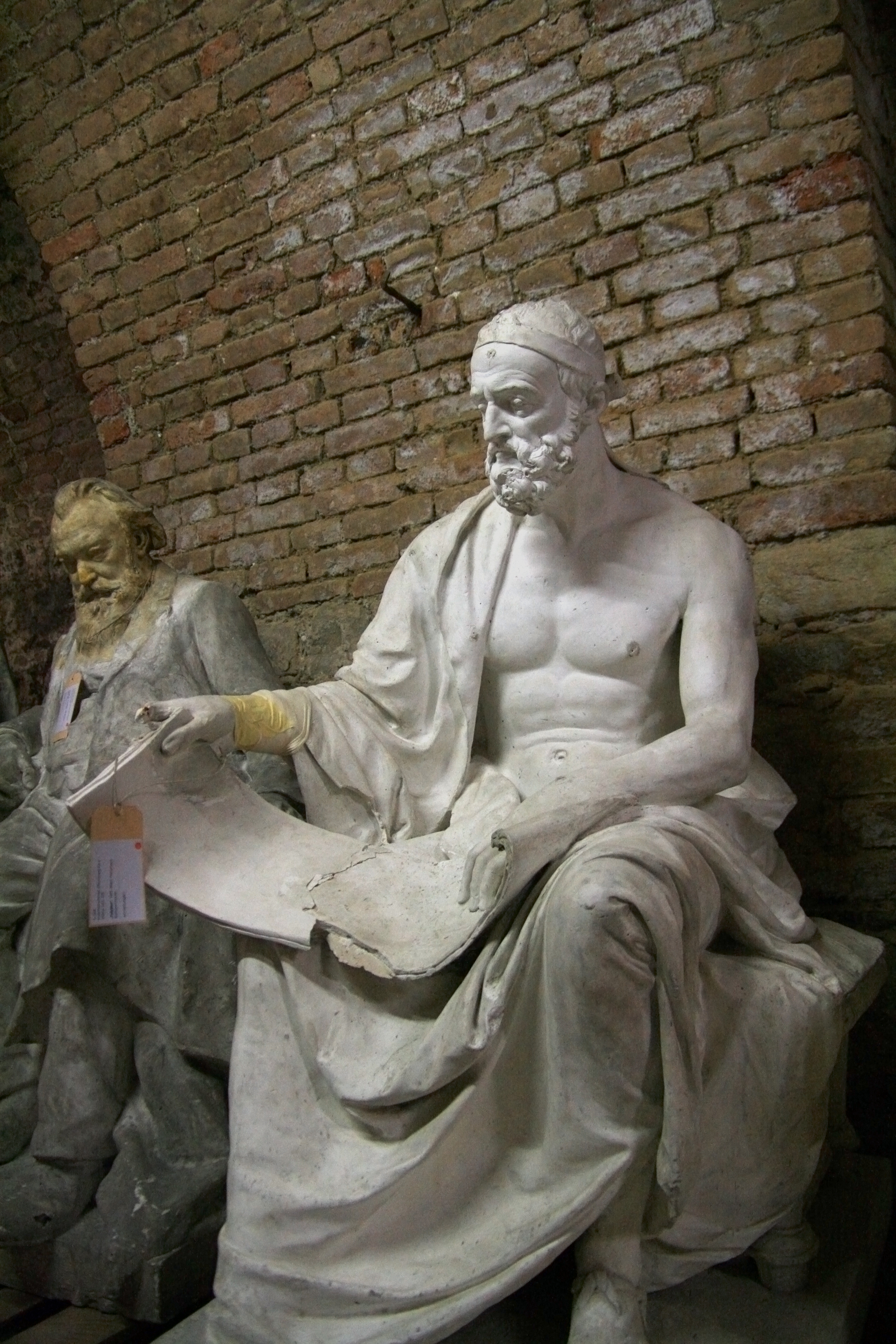The Histories
Kontext: I observe that while several modern writers deal with particular wars and certain matters connected with them, no one, as far as I am aware, has even attempted to inquire critically when and whence the general and comprehensive scheme of events originated and how it led up to the end. I therefore thought it quite necessary not to leave unnoticed or allow to pass into oblivion this the finest and most beneficent of the performances of Fortune. For though she is ever producing something new and ever playing a part in the lives of men, she has not in a single instance ever accomplished such a work, ever achieved such a triumph, as in our own times. We can no more hope to perceive this from histories dealing with particular events than to get at once a notion of the form of the whole world, its disposition and order, by visiting, each in turn, the most famous cities, or indeed by looking at separate plans of each: a result by no means likely. He indeed who believes that by studying isolated histories he can acquire a fairly just view of history as a whole, is, as it seems to me, much in the case of one, who, after having looked at the dissevered limbs of an animal once alive and beautiful, fancies he has been as good as an eyewitness of the creature itself in all its action and grace.
Polybios: Zitate auf Englisch
The Histories
Kontext: I observe that while several modern writers deal with particular wars and certain matters connected with them, no one, as far as I am aware, has even attempted to inquire critically when and whence the general and comprehensive scheme of events originated and how it led up to the end. I therefore thought it quite necessary not to leave unnoticed or allow to pass into oblivion this the finest and most beneficent of the performances of Fortune. For though she is ever producing something new and ever playing a part in the lives of men, she has not in a single instance ever accomplished such a work, ever achieved such a triumph, as in our own times. We can no more hope to perceive this from histories dealing with particular events than to get at once a notion of the form of the whole world, its disposition and order, by visiting, each in turn, the most famous cities, or indeed by looking at separate plans of each: a result by no means likely. He indeed who believes that by studying isolated histories he can acquire a fairly just view of history as a whole, is, as it seems to me, much in the case of one, who, after having looked at the dissevered limbs of an animal once alive and beautiful, fancies he has been as good as an eyewitness of the creature itself in all its action and grace.
The Histories
Kontext: Had previous chroniclers neglected to speak in praise of History in general, it might perhaps have been necessary for me to recommend everyone to choose for study and welcome such treatises as the present, since men have no more ready corrective of conduct than knowledge of the past. But all historians, one may say without exception, and in no half-hearted manner, but making this the beginning and end of their labour, have impressed on us that the soundest education and training for a life of active politics is the study of History, and that surest and indeed the only method of learning how to bear bravely the vicissitudes of fortune, is to recall the calamities of others. Evidently therefore no one, and least of all myself, would think it his duty at this day to repeat what has been so well and so often said. For the very element of unexpectedness in the events I have chosen as my theme will be sufficient to challenge and incite everyone, young and old alike, to peruse my systematic history. For who is so worthless or indolent as not to wish to know by what means and under what system of polity the Romans in less than fifty-three years have succeeded in subjecting nearly the whole inhabited world to their sole government — a thing unique in history? Or who again is there so passionately devoted to other spectacles or studies as to regard anything as of greater moment than the acquisition of this knowledge?
“All things are subject to decay and change.”
The General History of Polybius as translated by James Hampton' (1762), Vol. II, pp. 177-178
The Histories
Polybius. The Histories of Polybius, trans. Evelyn S. Shuckburgh. London, New York: Macmillan and Co., 1889. Book I, Chapter 1
The Histories
The General History of Polybius as translated by James Hampton' (1762), Vol. II, pp. 177-178
The Histories
Histories, VI, 56:10-12
Often quoted in the version found in The Fine Art of Baloney Detection by Carl Sagan from The Demon-Haunted World:
Since the masses of the people are inconstant, full of unruly desires, passionate, and reckless of consequences, they must be filled with fears to keep them in order. The ancients did well, therefore, to invent gods, and the belief in punishment after death.
The Histories
